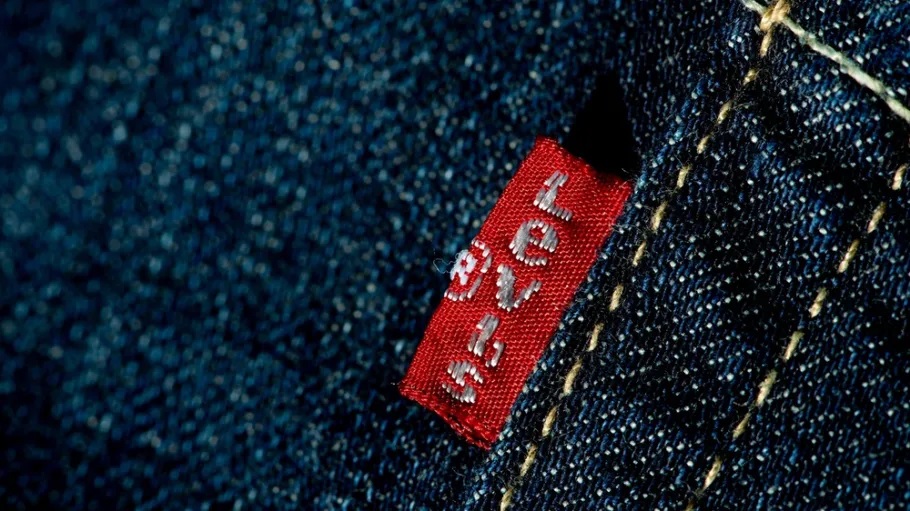
Category: General
Country: United States
SVEN HOPPE/PICTURE-ALLIANCE/DPA/AP IMAGES
By JASMIN MALIK CHUA November 5, 2021 3:06 PM.
Labor campaigners say it’s “high time” for Levi Strauss to start taking responsibility for the safety of workers in its supply chain by shelling out for material improvements in its supplier factories. The jeans giant, on the other hand, says it’s doing enough already.
While 150 brands and retailers, including Adidas, American Eagle Outfitters, H&M, Zara owner Inditex, have to date signed the International Accord for Health and Safety in the Textile and Garment Industry, a successor to the Accord for Fire and Building and Safety in Bangladesh, several of the world’s biggest brands are still hanging back, the Clean Clothes Campaign said Thursday. From this point on, the garment industry’s largest consortium of trade unions will be taking aim at companies that are choosing not to participate. Its first target: Levi’s, which works with 17 facilities in the South Asian nation, according to its public supplier list.
“Levi’s, despite sourcing from at least two dozen factories in Bangladesh, has failed to sign the two previous Accord agreements,” the Clean Clothes Campaign said. “It is high time that Levi’s starts to take responsibility for the safety of the workers in its supply chain and contributes financially to making factories safer.”
Many of the factories that Levi’s currently uses are not covered by any “transparent efforts” to detect and remediate safety hazards, such as insufficient smoke detectors and a lack of fire exits, the organization said. Because the denim brand shares some of its production lines with Accord signatories such as G-Star Raw, Next and Uniqlo, Levi’s is also “free-riding” on their commitments to “ensure that safety renovations are financially possible in the factories that they source from,” it added.
But Levi’s argues that it has been prioritizing worker safety through its supplier code of conduct and terms of engagement since 1991 and that it has continued to pour its resources behind initiatives that will “make the biggest difference for the workers in our supply chain, adapting policies and practices as needed.”
“In Bangladesh, we have built a 20-year record of worker safety,” a spokesperson told Sourcing Journal. “We did not have production in any of the facilities where tragedies have occurred over that time span, and in 2009, we forbade working with suppliers operating in multi-level, multi-owner buildings, where safety standards are difficult to enforce.”
The Red Tab maker said it requires all its suppliers in Bangladesh to undergo third-party electrical safety audits and building integrity audits, and it was among the first brands to expand those same guidelines to countries such as Cambodia and Pakistan.
“The programs we currently have in place cover the areas that Accord seeks to govern, so while we applaud the efforts and progress of Accords and what they are trying to accomplish, we believe our current programs and practices provide the same level of verifiable worker protections and uphold our responsibility to ensure a safe workplace,” the spokesperson said. “Going forward, we will maintain rigorous enforcement of our existing high standards around fire safety and building integrity and continue to share best practices with the industry, including collaborating with other brands in shared locations to reduce duplication and enhance corrective action efforts.”
Workers’ groups have argued, however, that the time for voluntary, self-monitoring measures is over, and the original Accord’s legally binding element was what made it so effective in the first place.
“It helped create a level playing field, so it wasn’t just brands, by their own volition, doing all the work,” Joris Oldenziel, deputy director of both the Bangladesh and International Accords, previously told Sourcing Journal. “It [also] created a lot of clarity for everyone [about what] they had to comply with. And it created a collective leverage that put maximum pressure on the factories to remediate.”
The Clean Clothes Campaign said it will continue to pressure brands sourcing from Bangladesh to sign the new Accord, whether they signed the original Accord before but did not join the new agreement, or have never signed a previous Accord and are instead relying on their own social auditing programs or “unenforceable collective systems” such as Nirapon. A replacement for the Alliance for Bangladesh Worker Safety, which functioned alongside the original Accord until its dissolution in 2018, Nirapon is backed by more than 50 brands, including Carter’s, Macy’s, Walmart and The North Face owner VF Corp.
“We urge all brands that source from Bangladesh to take responsibility for the safety of their workers by signing the International Accord,” said Kalpona Akter, president of the Bangladesh Garment and Industrial Workers Federation and founder of the Bangladesh Centre for Worker Solidarity. “There are too many brands out there that keep on hiding behind their own corporate programs without independent oversight, or behind non-transparent industry programs like Nirapon that are not trusted by the workers.”
The Clean Clothes Campaign said there is a greater urgency to sign the International Accord because the agreement includes a commitment to expand to other garment-producing countries with lax safety schemes. One possible candidate is neighboring Pakistan, where attempts to create an Accord-like program have been thwarted since a 2002 factory fire killed more than 250 workers and injured 60 others. The original Accord was also forged in tragedy: the 2013 collapse of the Rana Plaza complex, which killed 1,134 workers and injured or maimed thousands more.
“Brands’ self-regulation has never saved our workers’ lives,” Akter added. “The Accord is the highest standard the garment industry has, and any brand that produces in Bangladesh and fails to sign it is basically saying they don’t care about their workers’ safety.”
Courtesy: https://sourcingjournal.com/denim/denim-brands/levis-clean-clothes-campaign-worker-safety-bangladesh-311999/
Copyrights © 2025 GLOBAL TEXTILE SOURCE. All rights reserved.